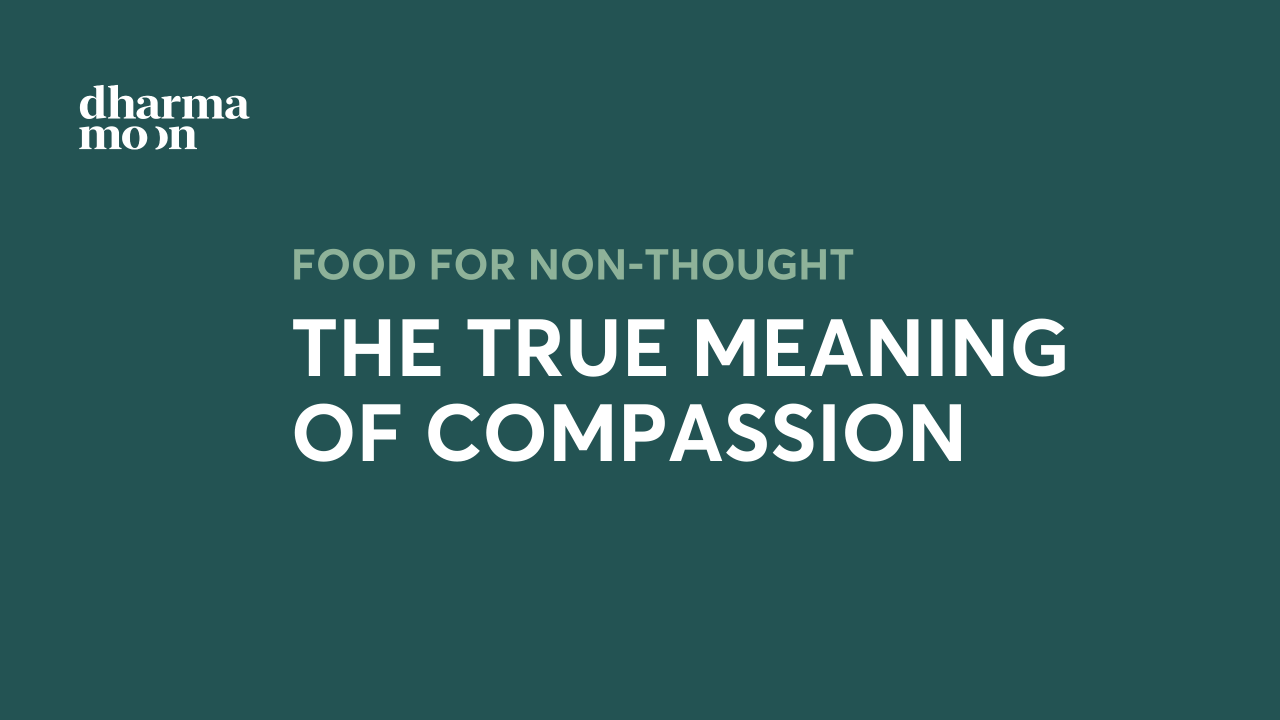The True Meaning of Compassion

Written by Rebecca D'Onofrio
“Compassion knows when to show up and lean in, it knows when to let go and walk away, it knows when to support and build up, and it knows when to cut through and destroy. These are all different forms of compassion and it is based on being fully in tune with the present moment and knowing what’s needed.”
Compassion is one of the more misunderstood concepts in Buddhism since we have a strong tendency to project our pre-existing notions onto it, but before we can understand the meaning of compassion, it’s important to explore what it isn’t.
Compassion does not mean that you are responsible for fixing other people’s problems, nor does it require you to cater to their negative habits.
It does not mean becoming an emotional punching bag or an emotional dumping ground, nor require you to remain in relationships that are toxic and abusive.
Compassion does not arise from a martyrdom mentality and it does not require you to abandon your self-concern.
All of these approaches actually contribute to more confusion, pain, and suffering. Compassion, according to Buddhism, should actually feel joyful and buoyant — not exhausting and depleting.
The truth is that compassion always starts with yourself first.
We can’t give to others what we haven’t first cultivated within ourselves. Being kind, gentle, and respectful toward yourself is the foundation from which true compassion is built. You must first understand and appreciate that your own existence, happiness, and wellbeing are worthwhile and when you can feel this sense of warmth toward yourself, you’re able to naturally extend that same warmth toward others, like the rays of the sun radiating in all directions.
But there can be no rays without a source — the source of compassion comes from developing love within yourself. In Buddhism, this is known as metta (or maitri). The moment we lose touch with the capacity to love ourselves, we lose the ability to be truly compassionate toward others.
Compassion is the wish for all beings to be free from suffering and it is ever available and generous to others without any expectations or personal agenda. It responds with a tender open heart at the sight of suffering and acts without hesitation to relieve it.
But it is intelligent and discerning — it knows when to show up and lean in, it knows when to let go and walk away, it knows when to support and build up, and it knows when to cut through and destroy. These are all different forms of compassion and it is based on being fully in tune with the present moment and knowing what’s needed (this is why meditation practice is so important).
When we are fully tuned in, we can better discern whether or not our involvement in another person’s situation is truly helpful or not — being compassionate does not mean ignorantly throwing ourselves into every situation. In fact, this could (and often does) lead to further confusion, entanglement, and suffering for all involved.
Sometimes the most compassionate thing we can do is to allow another person to move through the growing pains of their own evolution.
